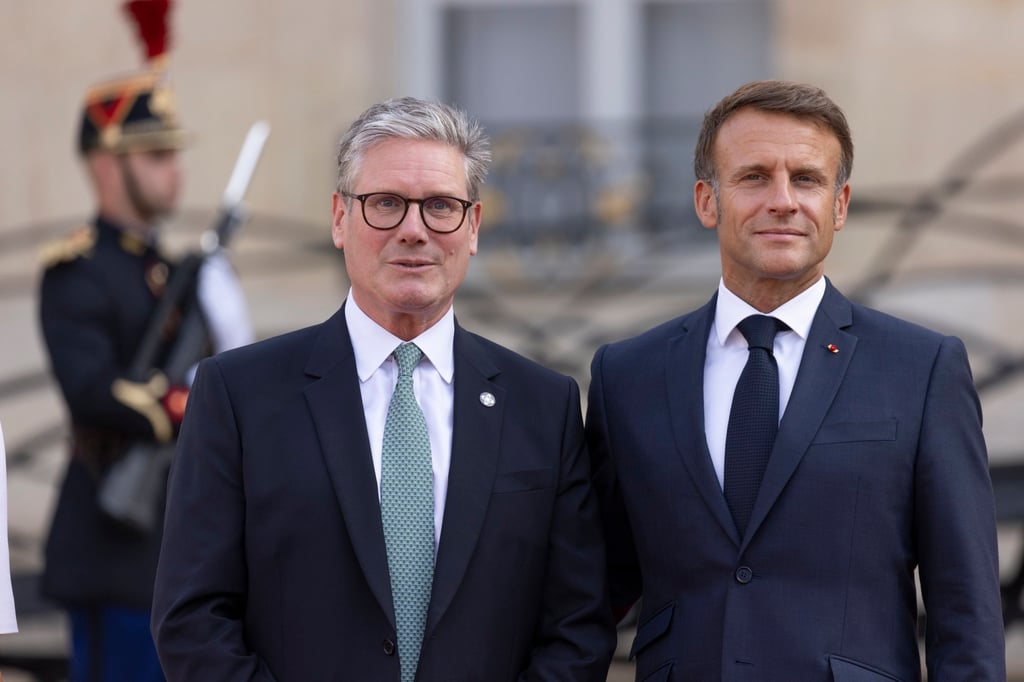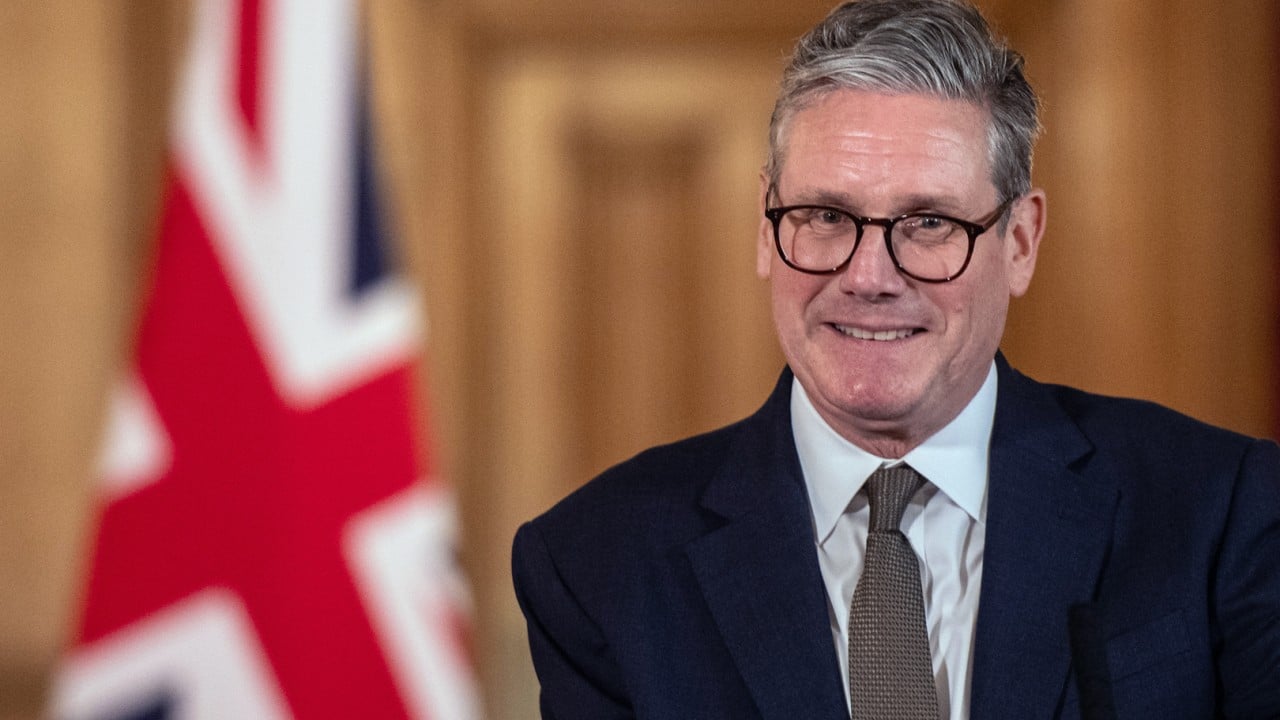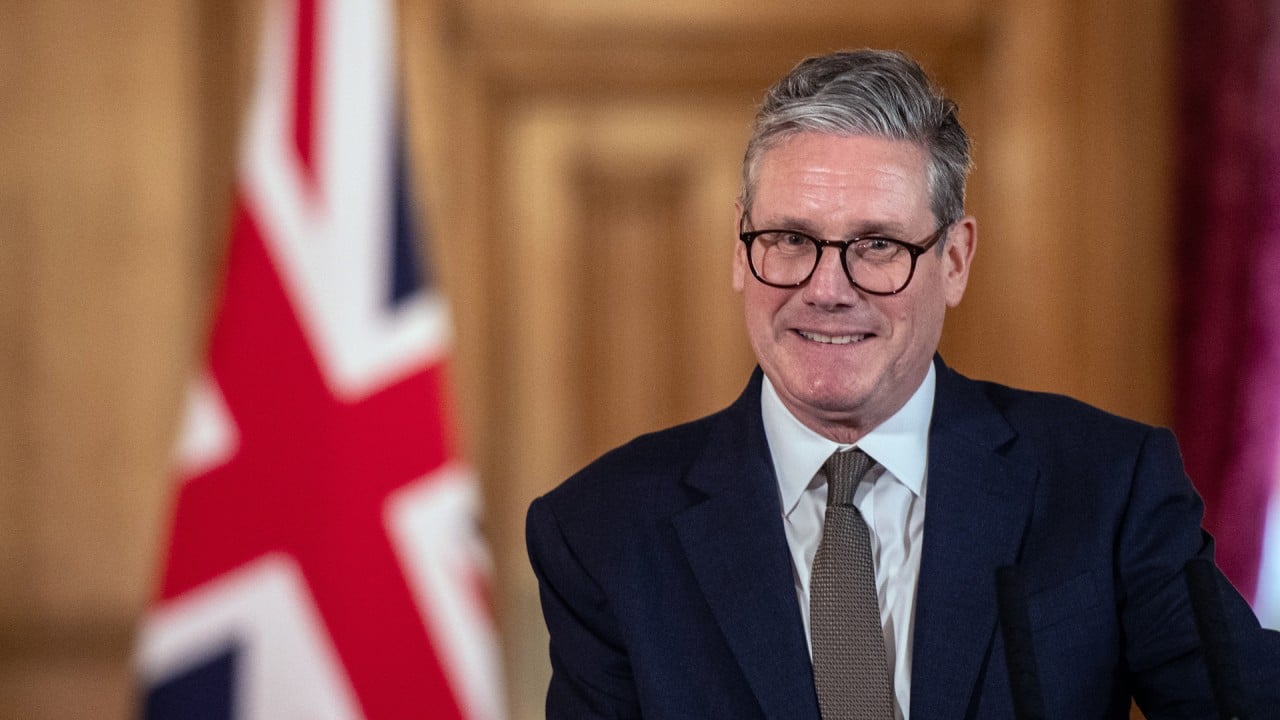British Prime Minister Keir Starmer said on Wednesday he fears a rise of the far-right in Britain and suggested progressive parties across Europe should jointly fight populism.
Starmer made the comments in Germany where the far-right Alternative for Germany (AfD) is expected to make big gains in regional polls on Sunday, dealing a blow to centre-left Chancellor Olaf Scholz.
“I do think that we should be alive in the UK to the challenge of the far-right and populism and nationalism,” Starmer told reporters in Berlin following a meeting with Scholz.
“There are a number of reasons for my concern – partly what’s happening in the UK, partly what you can see happening in other European countries, including in France and in Germany.”

UK Labour Party leader Starmer swept to power in a landslide general election win against the Conservatives early last month, in a rare recent triumph for a European centre-left party.
The poll, however, also saw the anti-immigration Reform UK party capture 14 per cent of the vote – one of the largest shares for a hard-right British party in UK electoral history.
Meanwhile, an election in France last month resulted in an inconclusive outcome in parliament’s lower chamber National Assembly, with the far-right National Rally winning 140 out of 577 seats.
French President Emmanuel Macron, who Starmer met in Paris later in the day on the second leg of his short European tour, has yet to name a new prime minister amid the deadlock.
“I think that the challenge has to be met by democracy and by progressives, and we have to have a joint discussion about what that means across Europe and beyond, which I’m very keen to pursue with progressive parties,” Starmer added.
Pollsters attributed Reform UK’s breakthrough to disaffection with mainstream politics to a crippling cost-of-living crisis, record levels of regular and irregular migration, and the fallout from Brexit.
Anti-Muslim riots broke out across English cities earlier this month with rioters shouting anti-immigrant slogans and chants like “Stop the Boats” – a reference to asylum seekers crossing the Channel from France.
Officials blamed disinformation and far-right figures, including Reform UK leader and arch-Eurosceptic Nigel Farage, for helping to stir up the disorder, which targeted mosques and hotels housing asylum seekers as well as police officers and other properties.
Starmer said he believed that “delivery and honesty is the best way of dealing with the snake oil of populism and nationalism”.
In a nationwide address on Tuesday he warned that his government would introduce a “painful” budget in the autumn, blaming the Conservatives for leaving the public finances in a perilous state.
But he tried to strike a more positive tone in Berlin, insisting that even though things will get worse first, the country will be in a better position by the end of the current parliament in five years.
“This is actually a project of hope, but it’s got to start with the hard yards of doing the difficult stuff, of clearing out the rot, first,” Starmer insisted.



